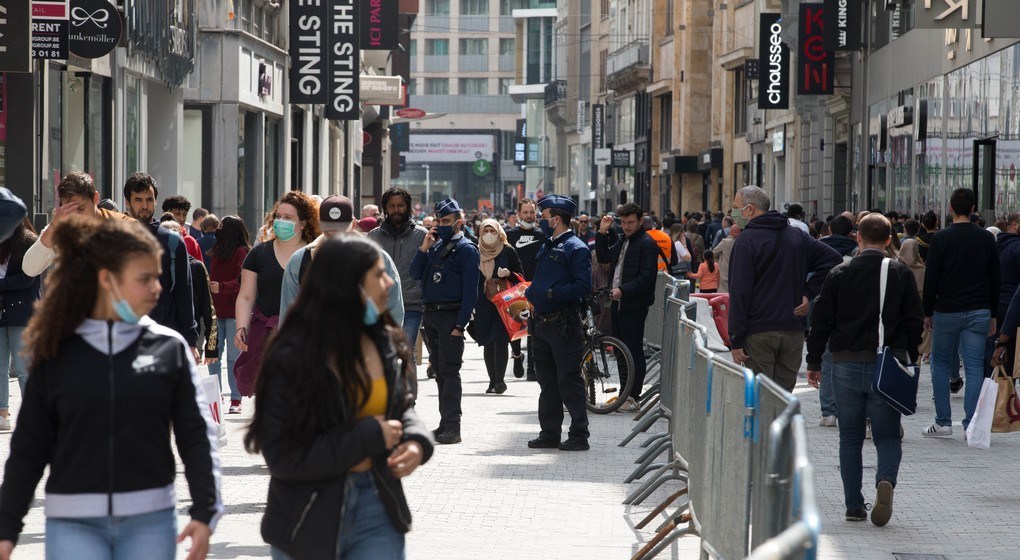The reproduction rate of the coronavirus in Belgium jumped to 0.94 from 0.84 on Tuesday, according to the latest figures from the Sciensano Public Health Institute published on Wednesday morning.
After sitting between 0.70 and 0.75 in the previous weeks, this number is nearing 1, at which point it would mean the pandemic is gathering pace in Belgium.
Between 27 June and 3 July, an average of 545 new coronavirus infections were detected per day, a 66% increase from the average of the previous week.
However, the daily average of testing over the past week has also doubled since last week, as a result of the summer holidays starting (an average of 62,443.6 tests were carried out) with a positivity rate of 1% (the same as the previous week).
Since the beginning of the pandemic, 1,089,105 cases of coronavirus infection have been diagnosed in Belgium.
The incidence, which indicates the average number of new cases per day per 100,000 inhabitants, has dropped by 28% since the last 14-day period and now sits at 53.2, a slight increase from last week.
Related News
- 'Mix and match': Netherlands allows Pfizer after first dose of AstraZeneca
- Number of people infected at Dutch nightclub hits 189
- 'Moral duty': vaccination should be mandatory for healthcare staff, says expert
During the same period, an average of 3.3 people died per day from the virus (down by 18% from the previous week), bringing the total to 25,194 deaths since the start of the pandemic in Belgium, and continuing a period of constant decline.
Between 30 June and 6 July, there was an average of 16.4 new hospital admissions per day due to the coronavirus, a 20% decrease compared to the previous reference period.
On Tuesday, a total of 257 people were in hospital as a result of the coronavirus (four fewer than on Monday) of whom 102 (-13 people were being treated in intensive care, and 74 people (-5) were on a ventilator.
As of Monday, 79.6% of the adult population in Belgium had received the first injection of a coronavirus vaccine. This figure equates to just over 7.4 million people.
Of these, just over 4.2 million people (46.0% of the adult population in Belgium) have received a second dose and are now considered fully protected.
The Brussels Times

